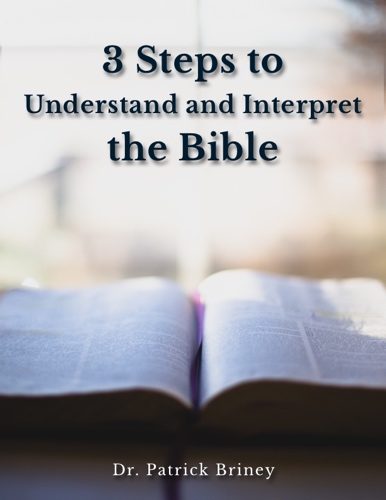The Biblical doctrine of the local church is one of the most important principles Christians can become familiar with. Satan has done all he can do to distort and obscure the teaching of the local church. Consequently, many Christians either neglect or hold lightly the importance of the church in their lives.
Many people confuse the family of God with the church of God.
The two terms are not the same. The family of God is made up of all believers. Romans 8:14-16 declares,
For as many as are led by the spirit of God, they are the Sons of God. For ye have not received the spirit of bondage again to fear; but ye have received the Spirit of adoption, whereby we cry, Abba Father. The Spirit itself beareth witness with our spirit, that we are the children of God.
Obviously, all who have given their heart and life to Christ are called Sons of God, making God their Father. All Christians therefore, have the same spiritual Father. That makes all Christians brethren. So then all Christians make up what is called the family of God.
Other references to the family of God include Matthew 5:9, which says,
“Blessed are the peacemakers: for they shall be called the children of God.”
John 1:12 declares,
“But as many as received him, to them gave he power to become the sons of God, even to them that believe on his name.”
In addition, First John 3:1 says,
“Behold, what manner of love the Father hath bestowed upon us, that we should be called the sons of God: therefore the world knoweth us not, because it knew him not.”
In contrast, the Bible refers to the church as local assemblies of baptized Christians who have made a covenant with God and to each other to serve God and fulfill His purpose on earth. The Bible refers to church 112 times, and 92 of these references refer to a local church or to many local churches. The remaining references use the word church generically.
The Bible references overwhelmingly point to local churches. In addition, descriptions of church policy can take place only in local church settings. For example, Matthew 18:17 says,
“And if he shall neglect to hear them, tell it unto the church: but if he neglect to hear the church, let him be unto thee as an heathen man and a publican.”
Can you imagine taking a matter of concern to a universal, invisible church? It is impossible. Only the local church can fulfill the Biblical application.
The concept of a universal and invisible church is an attempt to blend the family of God and the church of God together. Subsequently, many Christians who have been taught to think this way have been robbed of doctrinal insights that are important for spiritual maturity and that add to one’s appreciation for Christ’s wonderful plan to fulfill the Great Commission.
Regarding the concept of the universal, invisible church, Roy Mason comments,
This theory, which plays exegetical tricks, employs specious arguments and minimizes the importance of true churches of Christ, is a theory that has been and is a curse to the cause of Christ. It is one of the most widespread and hurtful heresies of our day….” — Roy Mason, 25
What exactly is wrong with the universal, invisible church doctrine?
There are several problems.
- First, it is contradictory to the usage of the word ecclesia.
- Second, it is contrary to Biblical references to local assemblies such as the seven churches in Asia Minor.
- Third, it is impractical for Scriptural application.
It is important to keep in mind that the doctrine in question is the universal, invisible church, not the family of God. The family of God does exist. It includes all believers. However, to call it the universal, invisible church is a mistake. Sad to say, this false doctrine has caused a great deal of confusion, and many Christians have neglected their responsibility to join a local church. Likewise, many local churches have not thrived as they should because they are lacking the gifts and talents of members that should be there.



